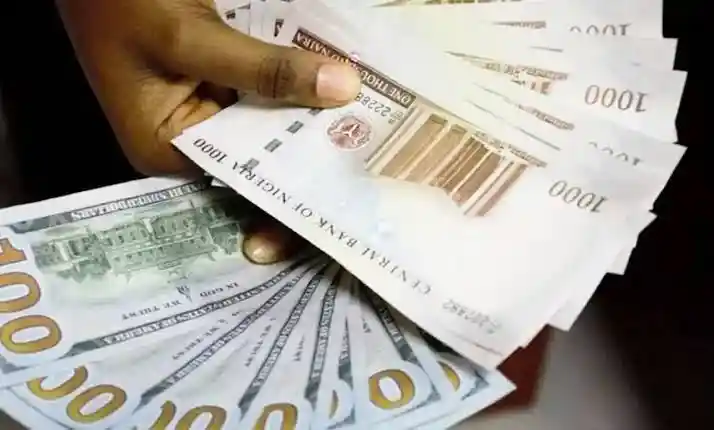Dollar to Naira Exchange Rate Today: Monday, April 28, 2025
- Advertisement -
Dollar to Naira Exchange Rate Today – April 28, 2025
The Dollar to Naira exchange rate remains a crucial barometer for Nigeria’s economy, affecting everything from import costs to individual remittances. As of Monday, April 28, 2025, both official and parallel (black market) rates exhibit marginal shifts amid global economic headwinds and domestic monetary policy adjustments. This report provides a comprehensive, SEO-optimized update suitable for Google AdSense monetization.
Today’s Official CBN Rate
- Advertisement -
The Central Bank of Nigeria (CBN) publishes daily foreign exchange rates on the National Foreign Exchange Market (NFEM). While the CBN’s official figure often serves as a reference for banks and corporate transactions, retail customers sometimes transact at slightly different interbank rates.
- Official Rate (Forex Window):
1 USD = ₦1,611.50 (USD To NGN: Convert United States Dollar to Nigerian Naira – Forbes) - Direction: Steady compared to late last week, reflecting subdued foreign currency demand.
Today’s Parallel (Black Market) Rate
- Advertisement -
In markets across Lagos, Abuja, and other urban centers, Bureau De Change operators set rates based on local supply and demand dynamics. These rates often diverge from the CBN’s official window but provide a real-time snapshot of liquidity on the streets.
- Buying Rate: ₦1,598.00 per USD
- Selling Rate: ₦1,610.00 per USD (Dollar (USD) to Naira Black Market Rate Today April 28, 2025 Aboki)
- Variation: Upward pressure continues as exporters await higher remittances and importers scramble for dollars.
Key Factors Driving Today’s Dollar to Naira Exchange
- Advertisement -
Several intertwined factors influence the Dollar to Naira exchange rate today:
- Global Oil Prices
- Nigeria’s foreign reserves rely heavily on oil receipts. A 2% dip in Brent crude last week tightened dollar availability.
- Monetary Policy Stance
- CBN’s recent retention of the Monetary Policy Rate at 18.5% aims to curb inflation but limits liquidity in domestic markets.
- Foreign Portfolio Flows
- Emerging-market funds remain cautious amid U.S. interest rate uncertainties, leading to slower capital inflows.
- Import Demand
- Rising import bills for machinery and pharmaceuticals have kept dollar demand elevated.
- Diaspora Remittances
- While remittances grew by 3% in Q1 2025, they have yet to fully offset corporate demand for foreign exchange.
These dynamics underscore why daily rate updates are essential for corporates, traders, and individuals alike.
Implications for Businesses and Consumers
The Dollar to Naira exchange rate today affects multiple economic actors:
- Advertisement -
- Importers & Manufacturers
- Higher input costs for raw materials, potentially pushing up consumer prices.
- Travel & Tourism
- Airfares and hotel bookings abroad become more expensive as dollar rates rise.
- Students Abroad
- Tuition payments can inflate sharply, requiring additional Naira funds.
- Remittance Recipients
- Families receiving dollars from overseas benefit when parallel rates exceed official figures.
- Investors
- Local equities may see volatility as forex-led cost-push inflation impacts corporate earnings.
A stable exchange rate is vital for planning budgets, pricing products, and making investment decisions.
How to Get the Best Exchange Rate
Individuals and small businesses can optimize their forex transactions by following these tips:
- Compare Multiple Providers
- Check rates at local banks, Bureau De Change outlets, and reputable online platforms.
- Leverage Digital Channels
- Platforms like Flutterwave, Remita, and local bank apps often offer competitive interbank rates with lower fees.
- Time Your Transactions
- Monitor rate trends; small improvements (₦2–₦5 swings) can save thousands on larger transfers.
- Negotiate Bulk Trades
- Bulk purchases of dollars can command better terms at BDCs and wholesale dealers.
- Watch Policy Announcements
- CBN directives on forex windows or new import guidelines can trigger rate movements.
Informed planning can yield savings and reduce risk from abrupt rate changes.
Frequently Asked Questions
Q1: Why are parallel rates higher than official rates?
Parallel-market liquidity shortfalls, stricter CBN controls, and speculative demand push street rates above official interbank figures.
Q2: Can individuals access the CBN rate directly?
No. Retail customers transact at bank rates, which factor in margins and fees over the CBN-parallel-window benchmark.
Q3: How often should businesses update their price lists?
At minimum weekly, though volatile periods may warrant daily reviews to protect profit margins.
Conclusion
The Dollar to Naira exchange rate today, Monday, April 28, 2025, reflects a complex interplay of global commodity trends, monetary policy, and domestic demand pressures. By staying updated on both official and parallel rates, Nigerians—individuals and businesses alike—can make informed financial decisions, optimize transactions, and mitigate risks posed by currency volatility.
TJ News Nigeria, Additional Reporting by Omajemite Don
- Advertisement -


